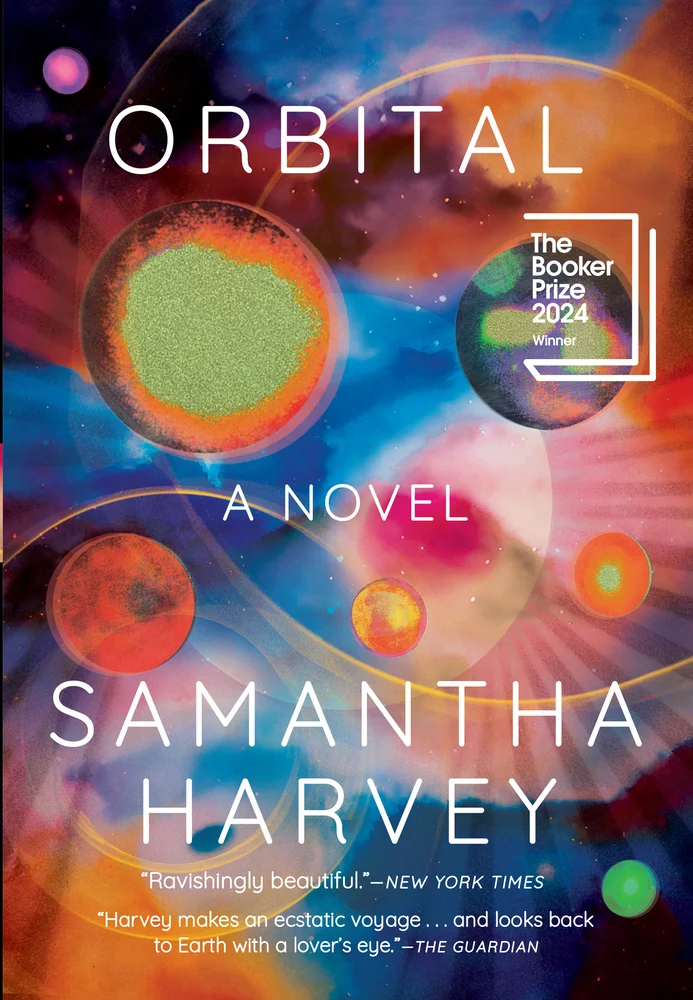Novel by MARGARITA KHEMLIN
Translated from the Russian by LISA C. HAYDEN
Reviewed by OLGA ZILBERBOURG
The year is 1950 in Kiev. A twenty-year-old college student, Maya Klotsvog, falls in love with her professor, Viktor Pavlovich. He’s eight years older and married. One day, the professor’s wife, Darina Dmitrievna, catches up with Maya at the tram stop and reveals that her husband loves Maya and has asked for a divorce. He wants to marry Maya and have children with her. But Darina Dmitrievna adds something else: “You’re Jewish and your children would be half Jewish. And you yourself know what the situation is now. You read the papers, listen to the radio. And then that shadow would fall on Viktor Pavlovich himself, too. Anything can happen. Don’t you agree? Babi Yar over there is full of half-bloods.”
Thus begins Klotsvog, a debut novel by Margarita Khemlin, who left us a total of four novels and a collection of stories before her death in 2015 at the age of fifty-five. The second of her novels to appear in English, thoughtfully translated from Russian by Lisa C. Hayden, Klotsvog follows Maya’s life through her four troubled marriages, the birth of her two children, a relocation to Moscow, and endless attempts at shedding her Jewish identity.
Maya and her mother had survived the Holocaust by evacuating deeper into Soviet territory. When they came back to their native town, Ostyor, which had been “an important center of the Jewish nationality,” they found their house razed to the ground and their neighbors dead. Now, in Kiev, they are starting from scratch. But implied in Darina Dmitrievna’s early words to Maya is a death sentence: the speaker has no doubt that the Jewish people will be finished off in the immediate future. Maya makes sure to clarify: “That was fascists, Darina Dmitrievna, and they are not here now,” she says about Babi Yar—a ravine near Kiev where German troops killed 33,771 Jews in September of 1941. “And now there’s a different twist,” Darina Dmitrievna says. “Just so you know, history develops along a spiral.”
In the Soviet Union, the years following WWII and before Stalin’s death in 1953 were marked by intense prejudice against Jews. The anti-Jewish sentiment took a particularly dramatic turn in 1948, when shortly after the formation of Israel that country turned to the U.S. as their main ally. Soviet leadership backed the Arab world, and Jews living in the Soviet Union became pawns in the geopolitical conflict. The official campaign against “rootless cosmopolitans” cost many ethnic Jews their livelihoods. In 1950s Kiev, Maya is living in an atmosphere of increasing anti-Semitism.
It turns out Maya’s love for Victor, her professor, cannot compete with her fear of the future. “The horrible assumptions hovering all around literally drove me into a corner and forced me to return, again and again, to the days in evacuations that had brought so many deprivations,” she says. She decides to marry Yefim, a family friend and also Maya’s boss, overlooking the 18-year age gap and his alcoholism. “I could live pleasantly and with dignity alongside a reliable person, at least for an allotted time, until new ordeals.” Maya, however, is already pregnant with Victor’s child, and when she marries Yefim, she hides from both men the paternity of her son.
In the scope of Khemlin’s book, this conflict takes less than fifteen pages, but I’m pausing on it because it sets up the trajectory of the novel and of Maya’s life. Focusing her attention on this conflict, the author taps into a larger, generational, story. Many of us who grew up in ethnically Jewish families in the Soviet Union have been frustrated by their families’ desire to distance themselves from their Jewish roots—by their desire to cast off all vestments of Jewish religion and cultural knowledge—while at the same time holding on to ideas of intermarriage and shared group identity. Khemlin helped me to understand this incongruity as a form of trauma processing, and in particular, to understand the way Soviet anti-Semitism re-traumatized people haunted by the lingering effects of the Holocaust. As Lara Vapnyar puts it in her introduction to Klotsvog, “I’d always thought that my inclination to distance myself from all things Jewish was a cultural one, an aesthetic choice more than anything else. I realize now that it stems from that sticky shameful survivor’s fear even though I am a whole generation removed from the Holocaust.”
Through Maya, Khemlin illuminates the particularity of the Holocaust survivor experience for Soviet Jews, and with an even greater granularity, Jews who grew up in the shtetls and lost their entire families to Nazi violence. The end of World War II did not liberate them, but sent them into the new agony of escalating Soviet anti-Semitism. The trauma associated with being Jewish deepened.
At twenty years old, Maya thinks about her future as one of a convicted and sentenced prisoner awaiting execution. The decisions that she makes as a result are those that would help her make her prison cell a little more comfortable. Yefim has his own apartment, which adds to his appeal as a marriage partner. But the apartment is only one room, and they have to share that room with Maya’s mother and her newborn, Misha. Maya begins to dread the camaraderie that’s growing between her mother and Yefim, who are close to each other in age and their experiences of loss. Wishing to leave the past behind, Maya schemes to have her mother move out and return to their native Ostyor.
Throughout the book, Maya is an active, energetic character whose opportunities to take charge of her life are severely limited by being a woman and a Jew. After Stalin’s death in 1953, the immediate danger of a second Holocaust passes, but anti-Semitism continues to fester; nothing helps to ease the accumulated trauma. Maya, unhappy with Yefim’s way of processing his trauma through drinking, finds a Ukrainian man with fewer ghosts looking over his shoulder. She divorces Yefim and marries Miroslav, and through a set of intrigues gets Miroslav to adopt her son Misha. Bureaucratically speaking, this is a win because Misha can now qualify to be registered as Ukrainian in his official paperwork. In practical terms, however, the marriage is a hassle: Miroslav lives with his ailing mother, and to avoid taking care of her, Maya needs to find a place to live. She solves the problem by manipulating Yefim into giving up his apartment, which gives Maya an opportunity to move forward with her new family and leave her Jewish past behind.
Unfortunately, as much as Maya tries, she cannot escape being perceived as Jewish. Her son Misha grows up deeply troubled by issues of his identity. On paper, he’s Ukrainian, and he and Miroslav relate to each other as father and son. But his elementary school classmate tells him that his mother is “a Yid woman,” adding a number of common anti-Semitic slurs. After Maya explains that Misha is half-Jewish, he becomes concerned. Which half of him is Jewish: left or right? Later that day, she finds him in the yard with a large nail in his right hand, considering striking his left. Maya takes the nail from him, thrashes him with a belt, and comments to the reader: “Yes, every person travels a path toward self-awareness. But why attempt to mutilate yourself with a rusty nail?”
Maya cannot escape being Jewish or having her child perceived as Jewish, so her next move is an attempt at using her identity to move up a social ladder. She divorces Miroslav and marries a well-to-do Jewish man, Mark Mikhailovich Faiman, who, like many others, has lost his parents in the Holocaust. Maya moves to Moscow, where she and Mark have a daughter, Ella.
Though both of Ella’s parents are Jewish, Maya keeps her as far as possible from anything related to the Jewish culture. Maya works on perfecting her accent, trying to establish a new urbanite identity for herself and for her children. She spends her traditional summer vacation on the coast of the Black Sea, avoiding taking Ella to visit her grandmother—Maya’s mother—in Ostyor. She keeps Ella at home for as long as possible, because she suspects that once Ella starts preschool, she will run into trouble with the issue of identity. Her experience with Misha has taught her to expect it. “A showdown would be taking place, too, owing to the fact that Ellochka was Jewish,” she warns Mark. “And some people do very stupid things to themselves later, owing to this fact.”
The showdown comes a few years later, and it’s ugly. Ella begins to overeat and starts fielding taunts of being a “fat Yid girl.” She beats up a boy for reading nationalities (hers listed as Jewish) from the end of a class roster. Together with a friend (also Jewish and similarly confused about her identity), Ella steals jewelry from her mother and, when questioned about it, declares, “We’re against Jews. We need money to escape from you. She from her family, me from you.” Maya underscores the chilling effect of her daughter’s declaration, adding, “And this child was nine years old. With such iron calm.”
The reader easily traces the source of Ella’s iron calm to Maya’s own voice. As the narrator of her own story, Maya has reported on the most horrific events in her life—her wartime experiences, the deaths of her family members and close friends (including her mother)—through Khemlin’s short, declarative sentences. Reviewers commonly praise this type of writing for being “unsentimental,” but reading Klotsvog, I felt this style was an essential part of Maya’s characterization. Translator Lisa C. Hayden does an excellent job of rendering Maya’s voice in English. It’s a dry, matter-of-fact voice that constantly substitutes bureaucratic and didactic vocabulary for emotionally-charged everyday terms. For example, while visiting Ostyor, Maya is having a heavy heart-to-heart conversation with her mother when her mother collapses. Maya’s report on the matter is curt, “I wanted to ask a lot more, but Mama had died.” A section break follows, a moment’s pause, and then: “A funeral again.”
Maya cannot afford feelings. She’s still only a lab rat, her days numbered. Being Jewish is inescapable, and Maya finds no way to buffer her children from the trauma. By the end of the novel, she loses touch with both of them. Concluding her narrative, she makes a gesture partially revealing her reasons for telling the story: “Comparing the past and the future, I can’t help but say I’d want to set certain things right.” She then lists the names of her deceased relatives, starting with her mother, admitting that their fate is her fate. Perhaps one way to set certain things right would’ve been to accept this fate earlier, to learn to appreciate her loved ones—and herself—for being Jewish. But perhaps that’s like asking a lab rat to appreciate the terms of her imprisonment. Khemlin doesn’t ask that of her character, but does give her a chance to tell her side of the story. She gives us an opportunity to listen.
Olga Zilberbourg is the author of LIKE WATER AND OTHER STORIES (WTAW Press, 2019) and three Russian-language story collections. She has published fiction and essays in Electric Literature, Lit Hub, Alaska Quarterly Review, Confrontation, Scoundrel Time, and elsewhere. She writes book reviews for The Common; co-edits Punctured Lines, a feminist blog about Russian literature; and co-hosts the San Francisco Writers Workshop.





